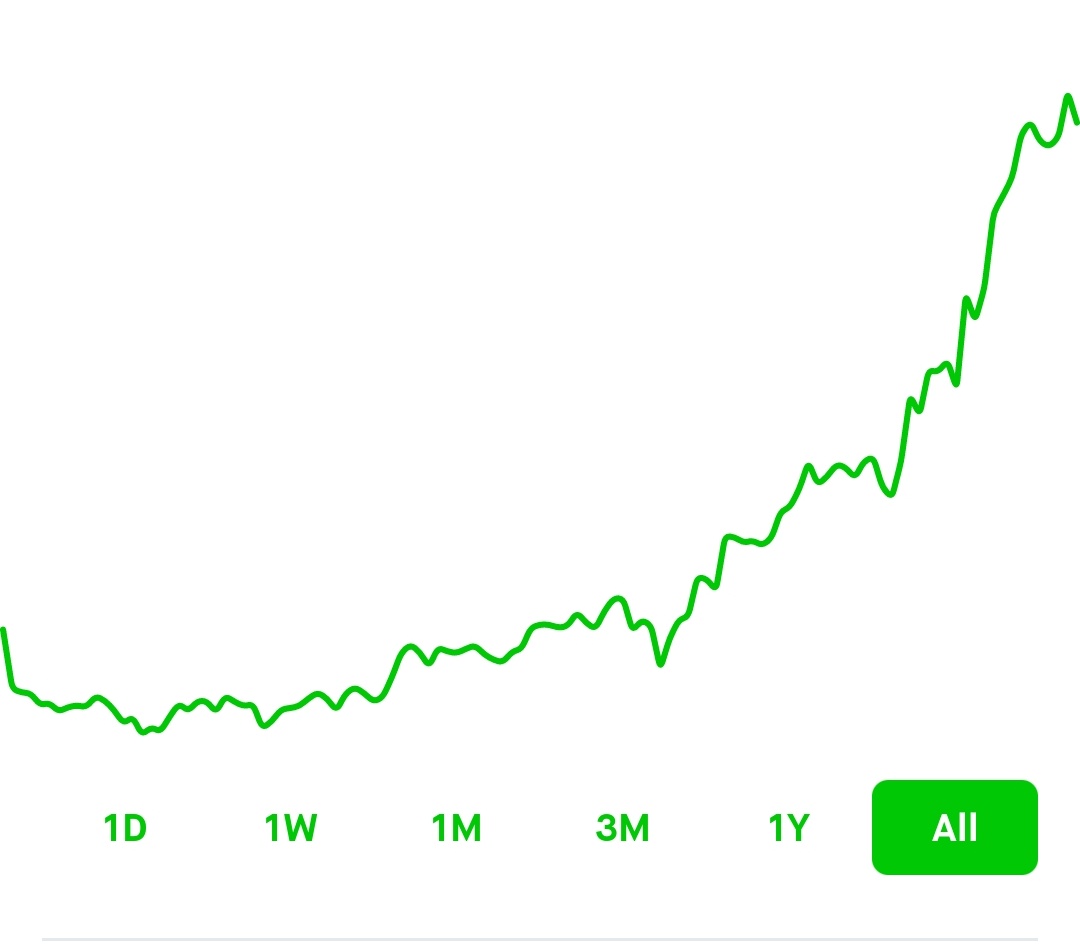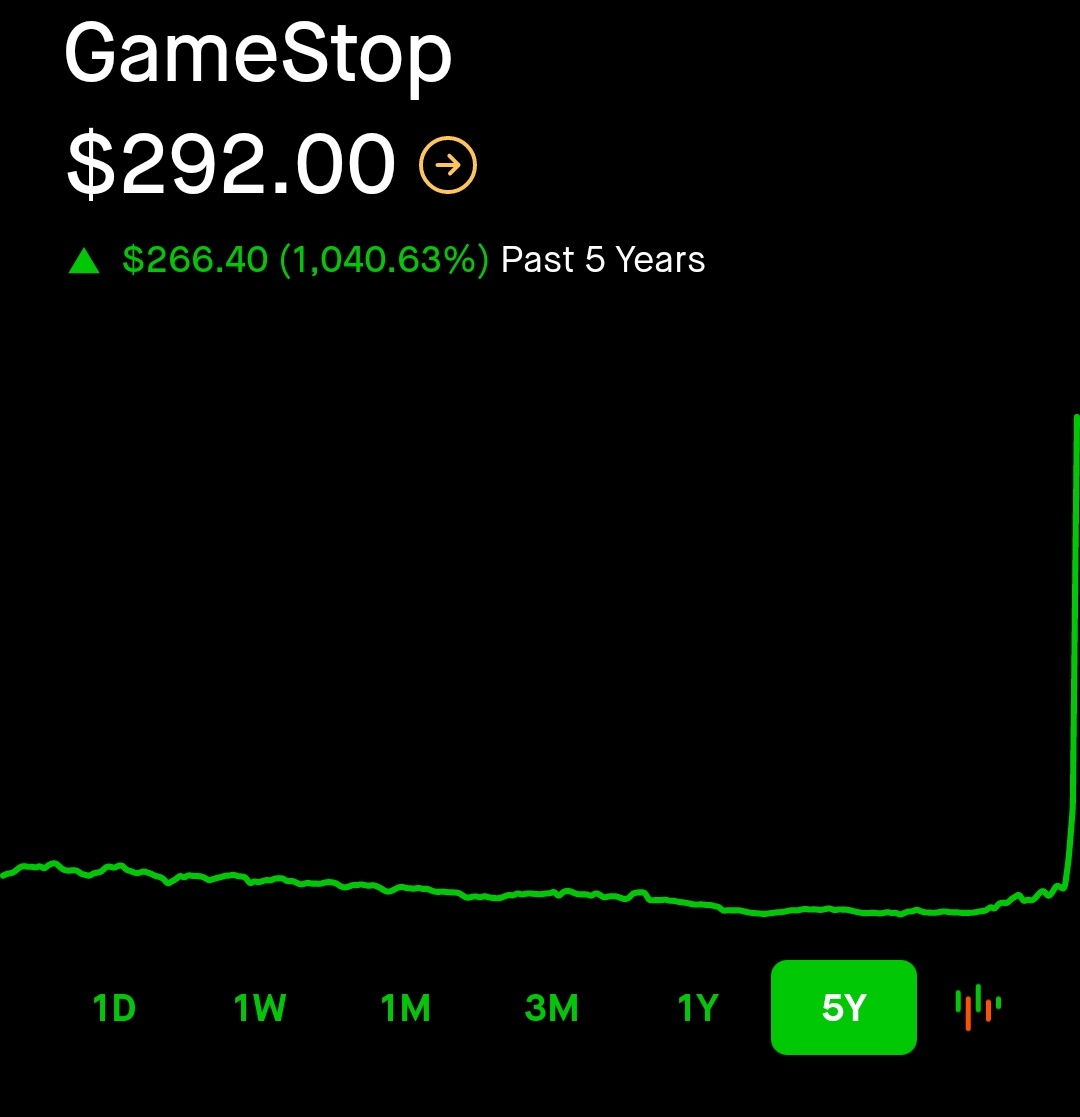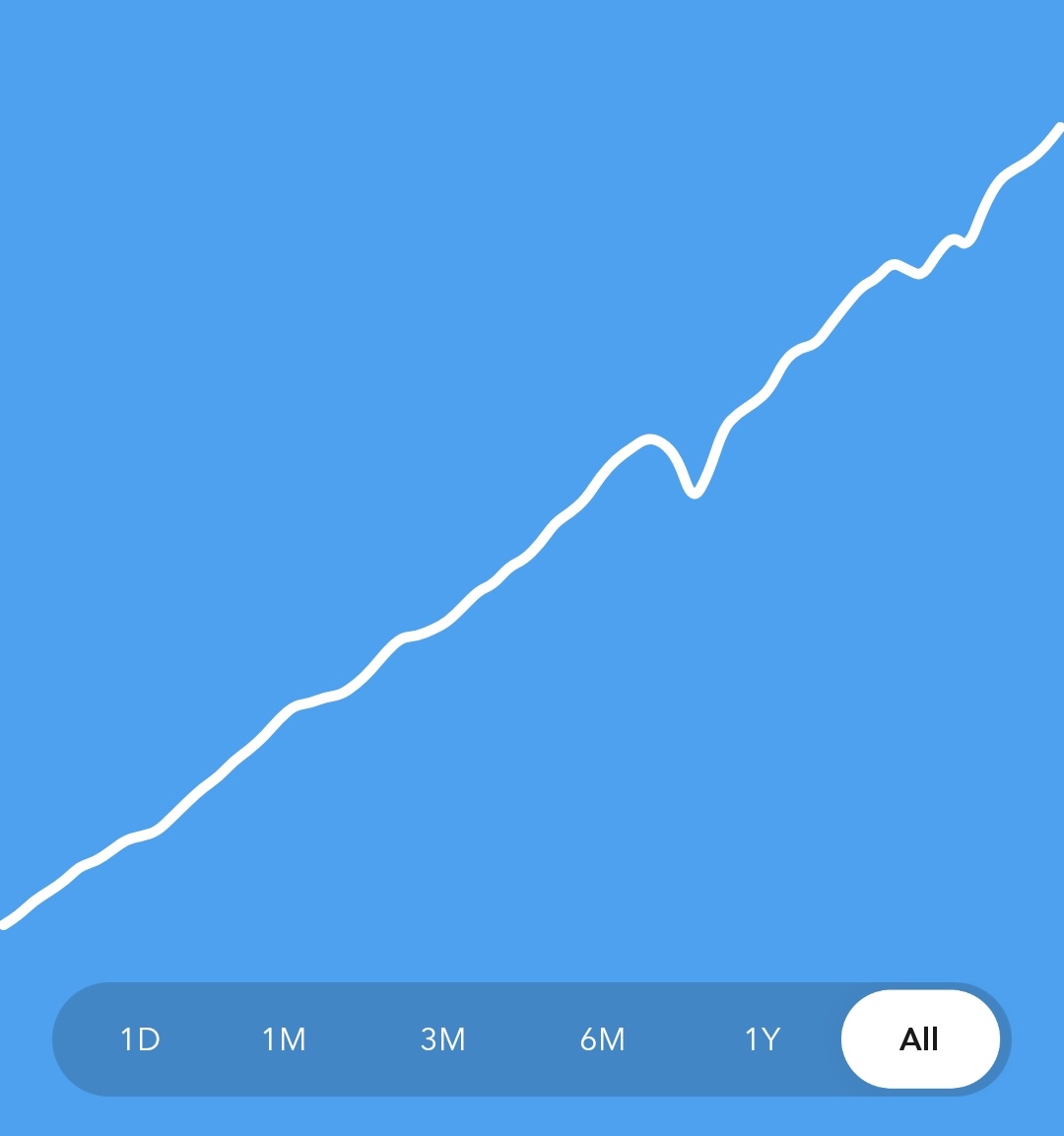Jan 28, 2021
STONKS: Thoughts on Trading & Investing
The recent stock market shenanigans regarding Game Stop and risky trading behavior sparked the “trading is just gambling” conversation in my family and I thought I’d share some thoughts on that as someone who does some casual trading/investing.

I don’t have a lot of money to work with, but it’s something I do in my spare time to save some extra cash.
Read on for some tips to get started saving money in the stock market. I don’t make much money doing it because I don’t have a lot of time to engage with the stock market, but I can offer a little advice on where to start.
I’m not going to dive deep into what happened with GameStop, but I think what we saw is a form of revenge. This ongoing trend of memetic disruptive trading feels like a grand joke to show how problematic the stock market is for society, born of frustration with the disproportionate effect it has on our lives. In context, I believe many people are angry with the US government using the stock market as justification (albeit a very poor one) against financial relief in an unprecedented pandemic situation.
If you’re thinking of entering the stock market, I suggest reading more about how it works, what types of financial securities and orders there are, and the specific risks associated with those types. I mostly use Stop-Limit orders. I started out wanting to be a momentum/swing trader, but found it was too much of a time commitment to reduce the risks associated with it, at least for me.
Table of Contents
Background
I’d like to preface this by saying I’m not a professional investor and I’m not the kind of person to ask what to invest in or specifically how to invest. I don’t pin my survival on investments, and you probably shouldn’t either unless you’re really serious about making that your focus in life.
When it comes to saving money, I use a combination of Robinhood, Acorns, and a Traditional IRA at Fidelity. Frankly speaking, if you’re serious about trading as a major source of income, you should seriously consider using something other than Robinhood and Acorns. If you’re a busy normie like me though, they may be a good place to get started. Some of these are invite links, and it’ll give me warm fuzzies if you decide to use them to register. All of these are pretty easy to set up and they’re each good for different things in my opinion. I do also have a normal savings/checking account, which is where most of my money is kept because I’m not a big risk taker. That said, it’s not exactly smart in the sense that it has a 100% chance of bleeding out to inflation.
I’ve got some more details about those platforms later on in this post.
Many people think using anything besides index funds is gambling, and this attitude is frustrating to me because it’s categorically false.
 The above graphic is what my Robinhood account looks like after 2 years. My portfolio is now comprised of 8 different stocks, but for the first year it was only one.
The above graphic is what my Robinhood account looks like after 2 years. My portfolio is now comprised of 8 different stocks, but for the first year it was only one.
I learned a lot from simply watching my first stock move around for a year. As you can see, it suffered a huge loss early on which I wasn’t expecting, but it was intended to be a long-term position so I held. I felt confident it’d bounce back because I understood my sector, and it did! It took over a year but that was about how long I expected because I understood the company’s production cycle, and I understood the drop was caused by emotional investors selling stock in high volume. It’s now my second best performing stock. Seeing day-to-day, week-to-week, month-to-month and then the full result at the end of a year was very instructive.
My best performing stock has been Unity, but I consider it a special case. I knew about the company before they went public (i.e. became a publicly traded entity by filing an IPO), and I pay close attention to news in my industry, which allowed me to get in the day they went public. I instantly moved some of my other stocks to Unity because I knew it was undervalued. Had I come to it a few months later I would not have seen such a big return on investment.
Trading/Investing is NOT Gambling
Trading and investing have a few key differences from gambling. This is with the caveat that I’d compare day trading more to poker than slots/roulettes/scratch-offs. Technically speaking I’m usually not a day trader either.
- In gambling the variables are often opaque. With stocks, you have access to lots of information that influences them. You can see how it has performed historically, and you can learn about what the company does and perform fundamental analysis to inform your decisions. You can’t do that on a slot machine.
- In gambling the system is random. Stocks don’t move for no reason. There is always some cause or force acting on them. It’s just a matter of whether you can figure out what it is, and whether you can learn how to anticipate movement.
- In gambling you have no meaningful influence over the system. Again, games like poker are an exception in that you can solve probability mathematically based on what you’ve seen so far. In trading you are part of the market forces acting on it. Not only that, but in the age of the internet you can easily be part of the discussion that influences other traders. You should learn what pumping and dumping is, as it’s a common example of this in action.
It’s worth noting that I had no stock in GME (GameStop) so this market event didn’t effect me much.
 I saw some unusual movement on my other game related stocks around the same time so that was kinda interesting to watch.
I saw some unusual movement on my other game related stocks around the same time so that was kinda interesting to watch.
From my days as a software engineer, I had 401k plans. Those were pretty nice, and I invested in index funds for those. They perform well over long periods of time, and are pretty reliable. This makes index funds good for retirement savings, but short-term you will generally see very small gains. Even if you don’t have access to a 401k, you can still invest in index funds with an IRA.
I still use index funds in my Traditional IRA account, but as of 2018 I also manage some of my own stocks manually. I don’t have a 401k anymore since I no longer work for a company that can legally contribute to one. I rolled those all into my IRA so I could continue contributing to something. Rule of thumb is to invest 14% of your income to an index fund, but I don’t make enough money to contribute that much anymore. I still put a little money in every month. It’s not much but it’s better than nothing! Oh well.
Robinhood has made the stock market more accessible than ever and it’s what I use for manual trading. However it’s worth noting that Robinhood is not a great broker option for people who are committed to day trading. Namely it’s not ideal in terms of the data/tools it provides, but on the bright side it’s free! If you’re thinking of signing up anyway you can use my referral link and we both get some free stock from them to invest with: https://join.robinhood.com/samuels2013
Before you commit to entering the stock market, commit to some boundaries and adhere to them. The horror stories we hear about trading gone wrong, in my opinion, comes down to setting bad boundaries. Or not setting any to begin with!
My Rules of Thumb
I fit more of a value investor archetype. This means I evaluate a stock in terms of how well I think it’ll do long term by assessing whether I think it is currently valued less than it’s actually worth. I generally take long term positions and stick with a new stock for at least a year before selling any of the shares. Besides that, I have 3 rules I follow when trading/investing.
- Trade what you know. In my case, this is game industry stocks.
- Only keep around 20% of your liquid assets in the stock market (so excluding my IRA investments and debt).
- Trade no more than around 5% of your assets at a time. Generally I trade a lot less than that.
There is a difference between trading and investing. I’m pretty sure most of my activity would be considered investing. I take some solace knowing that no one, not even professionals, know for sure how much a stock is worth. This is where a lot of people make the leap to calling it random gambling.
I subscribe to some newsletters about market trends, particularly the ones run by Investor’s Business Daily, which are used by the people who manage index fund accounts. They’re kinda dry and I don’t read them in depth, but it’s educational to see what professionals think is relevant. This is not always correct, as we’ve seen.
So far I’ve seen more than an 80% ROI in the last 2 years, so I feel like I’ve done pretty well for myself. Again, I don’t have much capital so that percentage doesn’t represent a huge sum of money, but it’s nice to have influence over that number and see it go up over time. That said, the pandemic has shaken things up a lot. Games and “sindustries” (booze, drug, gambling industries) tend to do better in recessions so I expect that number to go down a bit as the effects of the pandemic fade.
So yeah, if you plan to enter the stock market, research and boundaries are the keys to protecting yourself. If you don’t have those, you are gambling.
Stocktwits and r/wallstreetbets have lots of examples of stock market gambling, but it can be useful to see what other people are thinking. Sometimes the smartest move is to do the opposite of what’s trending, but for the most part I ignore those discussions.
One more note on saving
Saving money is good, but understand that keeping money in a savings account is always going to bleed out to inflation. Even as you add money to it every month, you’re still losing money by letting it sit there. There’s simply no way around that. I still have a normal savings account as there’s nothing more safe/liquid than that, but again, that security and flexibility comes at the cost of inflation.
I use Acorns for some extra hands-off saving/investing but the monthly fee they charge feels a little high. For that reason it’s kinda hard for me to recommend, but in my experience it still performs better than a savings account. The way it works is it monitors your credit card activity and rounds up your purchases to automatically invest every month. So if I buy a candy bar for $1.25, it adds $0.75 to a round-ups balance. Whenever that balance reaches $5 it automatically transfers those round-ups from my checking account to be invested. I also add an extra $5 every month for a little boost. If you’ve got the time to manage a diverse investment portfolio it’s not something I’d recommend, but if you’re a busy normie like me, it may be a good choice for you.
Despite the monthly fee, I still like it because it’s a very hands-off way to ensure I’m always putting a little money away every month, and unlike a savings account it’ll keep up with inflation. My total gains have been +17% over the last 2 years which is substantially better than a savings account, and still quite a bit better than index funds.
Acorns also has a referral program, so if you’re thinking of using it we can both get some complementary money if you use this link to sign up: https://www.acorns.com/invite/UW6WQ2
If you follow that link, you should probably click on the “Compare subscription tiers” link to see all tiers. There’s a $1/month tier which is what I use. I’m not sure if we get a benefit when you sign up for that one but do what’s right for you.
 The above graphic is what my Acorns account movement looks like, which I’ve also had for about 2 years.
The above graphic is what my Acorns account movement looks like, which I’ve also had for about 2 years.
TL;DR
Investing is easy and generally better than a normal savings account. If you’re not much of a risk-taker, you’re best off sticking with Blue Chip companies. Doing research and setting personal boundaries is key!
This wasn’t really meant to be a post where I shill things for money but for whatever it’s worth it would help me out a little if you’re thinking of testing the waters.
- Join Robinhood with my link and we’ll both get some free stock: https://join.robinhood.com/samuels2013
- Join Acorns with my link and you’ll get $5 to start investing: https://www.acorns.com/invite/UW6WQ2 and again, if you follow that link, you should probably click on the “Compare subscription tiers” link to see all tiers. I use the $1/month tier. I’m not sure if we get a benefit when you sign up for that one but do what’s right for you.
Like I said before, Robinhood, Acorns, and an IRA are good for different things. I use Robinhood for my manual moderate-to-high risk investments. It’s relatively easy to move the money in and out of the account. It’s also cool in that it allows fractional shares, which makes barrier to entry even lower when you don’t have much money. Acorns is a managed account (i.e. I select a risk profile and the fee goes toward someone making investments for me) which I use for automated moderate risk investments. It’s also easy to withdraw from if I want to. My Traditional IRA is NOT liquid - there are serious tax penalties for withdrawing money before you’re of retirement age. I have it set up to automatically invest in index funds, and use it for my long-term low-risk investments.
I hope this was helpful! If you’re into helping me pursue my game development and writing shenanigans, consider becoming a patron at https://patreon.com/sbseltzer
You're welcome to contact me though.